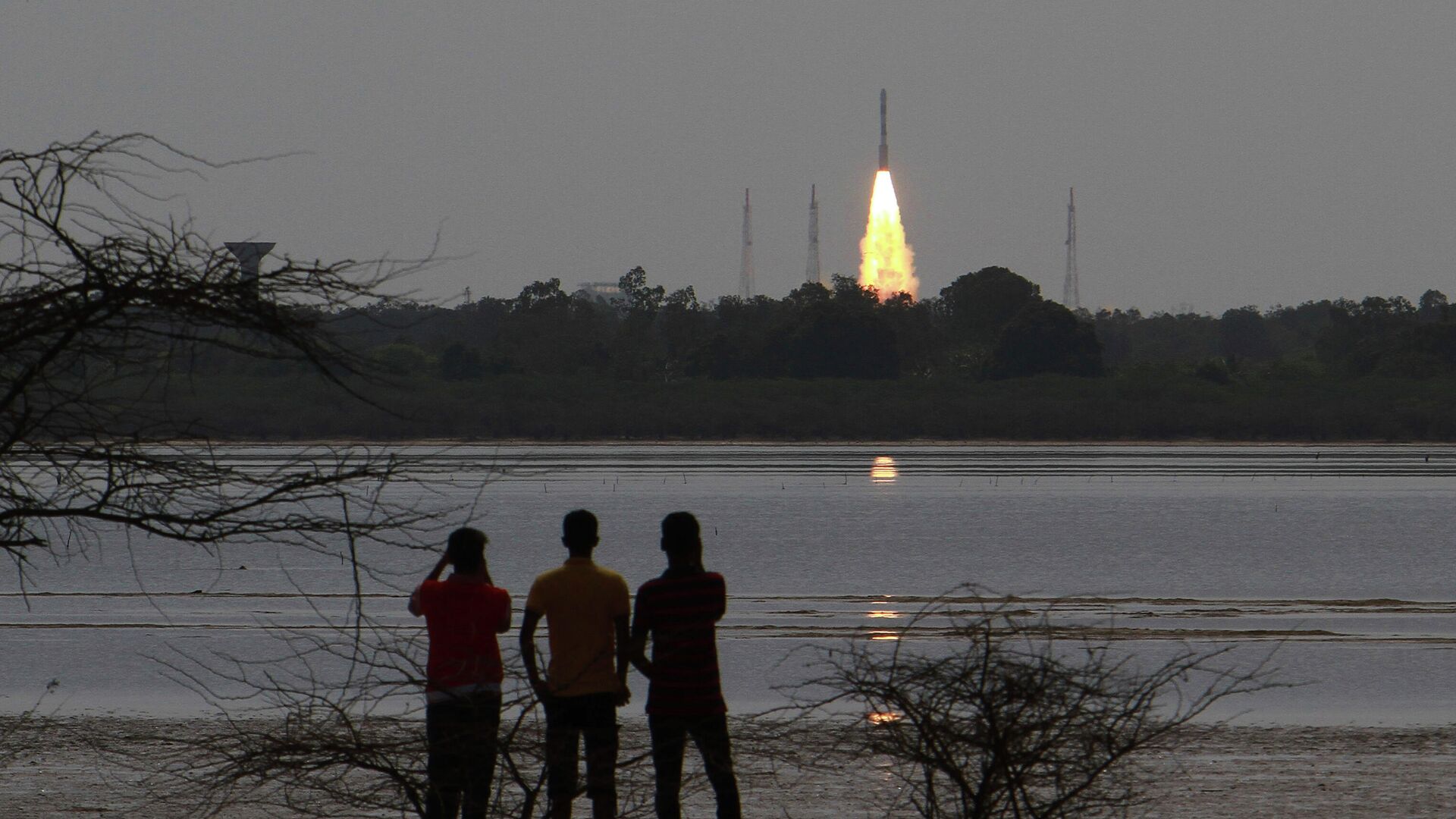https://sputnikglobe.com/20220608/india-mulls-operating-launch-facilities-in-australia-to-expand-space-capability-in-pacific-1096110191.html
India Mulls Operating Launch Facilities in Australia to Expand Space Capability in Pacific
India Mulls Operating Launch Facilities in Australia to Expand Space Capability in Pacific
Sputnik International
The Indian Space Research Organisation (ISRO) will launch its first manned space mission in 2023, which has been delayed by at least a year due to... 08.06.2022, Sputnik International
2022-06-08T12:38+0000
2022-06-08T12:38+0000
2023-04-12T16:57+0000
pacific
vietnam
australia
indian space research organization (isro)
manned missions
space
https://cdn1.img.sputnikglobe.com/img/07e5/0c/10/1091570760_0:146:3049:1862_1920x0_80_0_0_c0f7c856ac2b2cb01886307fa58bfa36.jpg
The ISRO has planned to establish ground stations in Australia for satellite data reception to expand its space exploration and navigational capabilities in the strategic Pacific region.A discussion for a dedicated surface-based facility for the Gaganyaan—the country’s first crewed mission, is progressing well with Australia, India’s space exploration agency said.The ISRO wants to accelerate the establishment of the ground station to ensure the proper functioning of the launch vehicle that would be tested by sending a crewless mission early next year. The unmanned mission further tests the efficiency of power generation units to ensure communication through various ground stations across the globe.The two countries have also discussed other potential areas of joint work, including Australia’s International Space Investment initiative, a strategic project allowing Australian industries to unlock around $25 million in India’s space sector, which is estimated to grow by $43 billion by 2025.Establishing ISRO’s ground stations in Australia will help the accuracy of the independent navigation satellite system NavIC-- a project aimed at removing dependency on foreign satellites for navigational purposes, primarily for the military.The Indian government had mulled having a domestic navigational system after the US denied an Indian request for Global Positioning System (GPS) data during the war with Pakistan in 1999.The ISRO has operational ground stations in Indonesia, Brunei, and Mauritius, while works are underway to establish such a surface-based facility in Fiji and Vietnam. The ISRO also operates remote sensing data reception station in Antarctica.
pacific
vietnam
australia
Sputnik International
feedback@sputniknews.com
+74956456601
MIA „Rosiya Segodnya“
2022
Rishikesh Kumar
https://cdn1.img.sputnikglobe.com/img/07e4/08/04/1080055820_0:0:388:389_100x100_80_0_0_40018ee210946d65d49ffba4f4c008e1.jpg
Rishikesh Kumar
https://cdn1.img.sputnikglobe.com/img/07e4/08/04/1080055820_0:0:388:389_100x100_80_0_0_40018ee210946d65d49ffba4f4c008e1.jpg
News
en_EN
Sputnik International
feedback@sputniknews.com
+74956456601
MIA „Rosiya Segodnya“
Sputnik International
feedback@sputniknews.com
+74956456601
MIA „Rosiya Segodnya“
Rishikesh Kumar
https://cdn1.img.sputnikglobe.com/img/07e4/08/04/1080055820_0:0:388:389_100x100_80_0_0_40018ee210946d65d49ffba4f4c008e1.jpg
pacific, vietnam, australia, indian space research organization (isro), manned missions, space
pacific, vietnam, australia, indian space research organization (isro), manned missions, space
India Mulls Operating Launch Facilities in Australia to Expand Space Capability in Pacific
12:38 GMT 08.06.2022 (Updated: 16:57 GMT 12.04.2023) The Indian Space Research Organisation (ISRO) will launch its first manned space mission in 2023, which has been delayed by at least a year due to pandemic-induced disruption and some technological hurdles. The space exploration agency will conduct two abort tests and launch an uncrewed mission before the final task.
The ISRO has planned to establish ground stations in Australia for satellite data reception to expand its space exploration and navigational capabilities in the strategic Pacific region.
A discussion for a dedicated surface-based facility for the Gaganyaan—the country’s first crewed mission, is progressing well with Australia, India’s space exploration agency said.
The ISRO wants to accelerate the establishment of the ground station to ensure the proper functioning of the launch vehicle that would be tested by sending a crewless mission early next year. The unmanned mission further tests the efficiency of power generation units to ensure communication through various ground stations across the globe.
The two countries have also discussed other potential areas of joint work, including Australia’s International Space Investment initiative, a strategic project allowing Australian industries to unlock around $25 million in
India’s space sector, which is estimated to grow by $43 billion by 2025.
Establishing ISRO’s ground stations in Australia will help the accuracy of the independent navigation satellite system NavIC-- a project aimed at removing dependency on foreign satellites for navigational purposes, primarily for the military.
The Indian government had mulled having a domestic navigational system after the US denied an Indian request for Global Positioning System (GPS) data during the war with Pakistan in 1999.
The ISRO has operational
ground stations in Indonesia, Brunei, and Mauritius, while works are underway to establish such a surface-based facility in Fiji and Vietnam. The ISRO also operates remote sensing data reception station in Antarctica.




